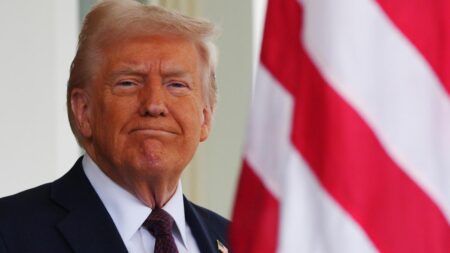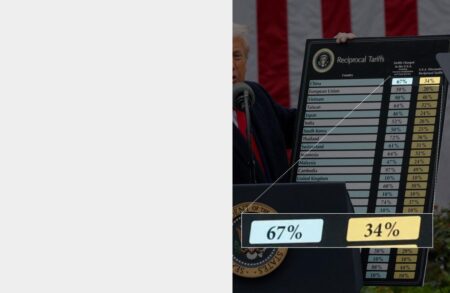Canada is expanding its natural gas reach by launching exports to Asia, venturing beyond its long-standing U.S. market. This exciting shift not only diversifies trade partnerships but also taps into Asia’s rapidly growing energy demand, marking a vibrant new era in Canada’s energy strategy
Browsing: U.S. trade relations
Trump’s tariffs are shaking up global supply chains, causing a ripple effect of rising costs for both manufacturers and consumers. As businesses grapple with delays and the daunting maze of trade barriers, they find themselves in a state of heightened uncertainty. This turmoil not only complicates their operations but also poses significant challenges to our broader economic recovery efforts.
The United States Trade Representative’s reciprocal tariff calculations play a crucial role in shaping international trade relations. By assessing tariffs imposed by trading partners, the U.S. aims to foster fair competition and protect domestic industries.
In response to escalating tensions in Trump’s trade war, Mexico, Canada, and China swiftly implemented new tariffs on U.S. goods. This retaliatory measure underscores the growing economic strain and uncertainty surrounding international trade relations.
The recent Trump tariffs aim to protect American industries from foreign competition, advocating for job preservation and economic stability. Proponents argue that these measures create a more equitable trade environment, ultimately benefiting U.S. workers.
In a significant trade development, President Trump has announced that the proposed 25% tariffs on goods from Canada and Mexico will be implemented. This move aims to address trade imbalances, but it raises concerns among agricultural and manufacturing sectors about potential retaliatory measures.






